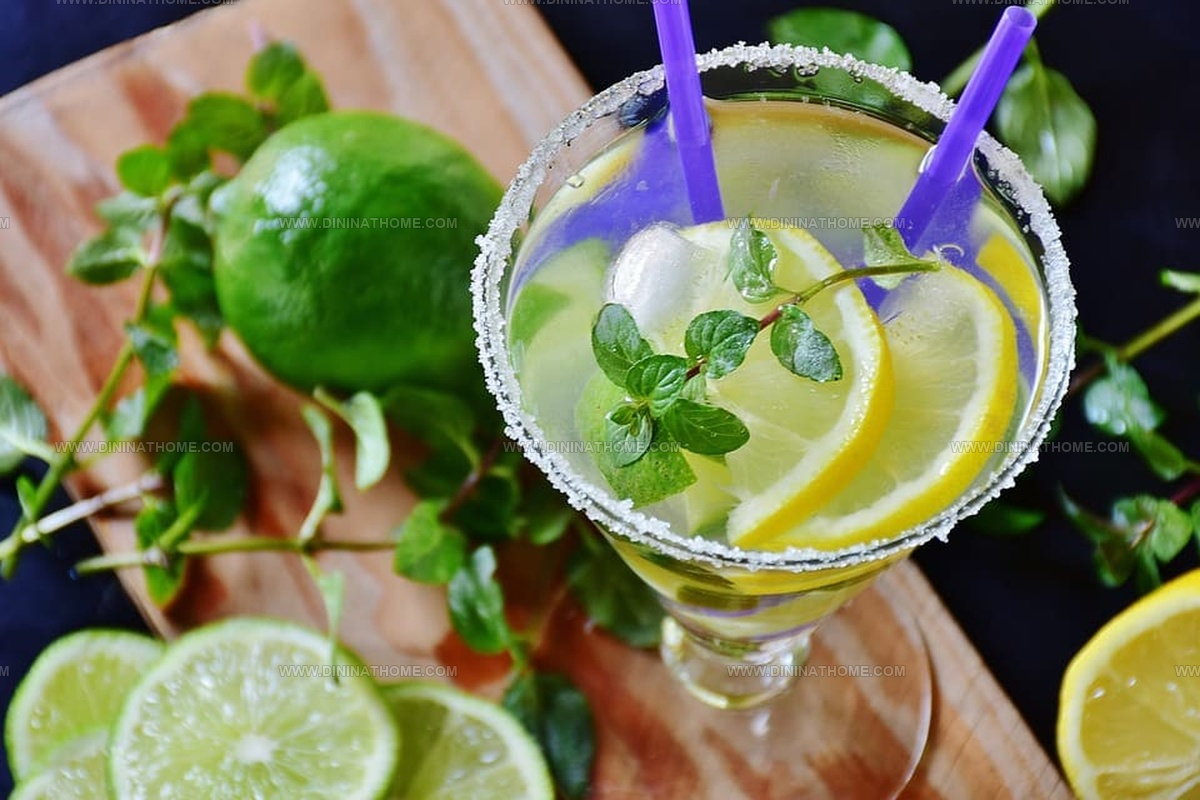What Does Lemon Juice Taste Like? The Zingy Truth Revealed!
Lemon juice offers a tantalizing sensory experience that goes far beyond simple refreshment.
Citrus enthusiasts and curious food lovers often wonder about its distinctive flavor profile.
The bright, zesty liquid carries a complex array of sensory characteristics that intrigue palates worldwide.
Acidic and sharp, this liquid brings an intense punch to countless culinary creations.
Its unique properties transform dishes and beverages in remarkable ways.
Chefs and home cooks rely on lemon juice to elevate their recipes with its remarkable qualities.
Understanding the nuanced essence of this citrus marvel can revolutionize your approach to cooking and drinking.
Are you prepared to unravel the delightful secrets behind this vibrant ingredient?
What Is Lemon Juice?
Squeezing lemons releases juice from their soft center.
People often mix this juice with water and sugar to make lemonade.
Sour citrus fruits pack a punch of strong acid inside their skin.
Lemon tastes can swing between sharp and sugary depending on the specific fruit.
Lemon Juice Taste Guide
Sweet, sour, and sharp, lemons pack a punch in drinks and meals.
Lemon juice delivers a tangy punch that makes your taste buds wake up.
Acid inside lemons stops bad germs from spreading.
Mixologists and chefs love this fruit for making cocktails, treats, and desserts taste amazing.
Lemons work magic with chicken, green veggies, and herbs like dill.
People enjoy how lemons bring energy and brightness to different recipes.
Cooking with lemons helps add special flavor that makes ordinary food feel more exciting.
Lemon Juice Varieties & Their Flavors
Lemon juice isn’t all the same, different types bring their own unique flavors to drinks and dishes:
How to Maximize Juice from Fresh Lemons
Getting the most juice from fresh lemons is easy with a few simple tricks that make every squeeze count:
With these easy tips, you can get every drop out of your lemons for cooking, drinks, or anything else that needs a bright burst of citrus.
Is Lemon Juice Good for You?
Lemon juice offers a wealth of vitamin C. Scientific research shows this nutrient plays a key role in stopping many modern health problems.
Bone strength, tissue repair, and mouth health need vitamin C. Cells get protection from harmful molecules, and body defenses become stronger against sickness.
Doctors have found that vitamin C can help blood vessels stay healthy and might support brain and reproductive health.
Nutritional facts for one tablespoon of lemon juice include:
Health Benefits of Lemon Juice
People know lemon juice packs powerful health perks.
Medical studies show this simple drink brings lots of good things to your body:
Fights Germs
Lemon juice carries powerful health-protecting qualities against harmful microbes.
Research shows special chemicals inside lemon juice can stop dangerous bacteria and fungus from spreading.
Scientists discovered juice concentrates block growth of serious infections like salmonella, staphylococcus, and candida.
Medical experts also found lemon juice helps fight specific bacteria strains that resist typical antibiotic treatments, particularly those causing dangerous pneumonia and blood-related infections.
Can Lower Blood Pressure
Japanese researchers studied possible connections between lemon juice and blood pressure.
Research showed an interesting link where drinking more lemon juice seemed connected to lower blood pressure measurements.
Scientists still want to learn more about why specific chemicals in lemon juice might help reduce blood pressure levels.
Helps Stop Cancer
Lemon juice is loaded with flavonoids, powerful plant compounds that help protect the body from cancer.
These antioxidants work to stop cancer cells from growing and spreading.
Research even shows that lemon juice may be especially good at blocking leukemia cell growth.
Used For Cancer Care
Scientists have found that lemon juice can stop tumor growth, which helps fight certain cancer types.
Research shows chemical signals from lemons can block cancer cell multiplication and trigger their destruction.
Can Too Much Lemon Juice Be Harmful?
Lemon juice has powerful chemicals that might cause health concerns.
People should talk with doctors before drinking it or taking similar supplements.
Check these important points:
Citrus Fruit Allergies
You might experience a lemon allergy if grass pollen or other citrus fruits trigger your immune system.
Common symptoms include tongue and throat irritation with uncomfortable itching and burning sensations.
Some individuals also face additional challenges like headaches and digestive system discomfort.
Tooth Enamel Can Wear Down
Drinking too much lemon juice might damage your teeth.
Strong acids found in lemons can wear down tooth enamel when consumed in large quantities.
Dental experts warn that regular heavy intake of lemon juice could lead to serious tooth problems over time.
May Trigger Migraines
Lemon juice contains high levels of tyramine.
Someone sensitive to this substance could experience migraine headaches after drinking lemon juice.
How Much Lemon Juice Per Day?
Drinking lemon juice every day brings positive health benefits.
People can create a tasty shikanji by mixing lemon juice with water, adding salt or sugar (for non-diabetic individuals), and sprinkling cumin powder, according to Dr. Datta.
Lemon juice serves as a refreshing daily drink packed with health benefits.
Sipping warm lemon water early in the morning supports overall wellness.
Summer months make lemon juice especially valuable because it contains potassium, an important mineral.
Fresh Lemon Juice vs. Bottled
They carry almost zero calories and fat.
Both are packed with vitamin C, folate, and potassium.
Squeezing fresh lemons gives more vitamin C than store-bought juice.
Making bottled lemon juice involves quick heating and cooling.
Heating changes juice flavor because certain compounds break down.
Water-soluble vitamins are super sensitive to heat and quickly disappear.
Heat especially wrecks vitamin C levels.
Some juice makers put vitamin C back into bottles since customers expect it.
Other brands add sugar because heating makes juice taste sour, and people want sweeter drinks.
Manufacturers compensate for these changes.
How to Store Lemon Juice
Lemon juice doesn't stay fresh forever.
Old juice turns bitter and brown, so you should toss it out right away.
When the liquid looks darker than its original whitish-clear color, it signals time to discard the bottle.
Keeping lemon juice cold after opening helps prevent spoilage.
Without refrigeration, the juice becomes sour and loses its original tangy flavor.
Lemon juice has different levels of acid that can change quickly.
This acidity makes it prone to spoiling fast.
Storing juice in the refrigerator immediately after opening stops bacteria from growing and prevents it from turning into vinegar.
Checking the taste matters when dealing with lemon juice.
Sour notes mean the juice has gone bad and won't taste pleasant.
Good lemon juice has a mild, tart flavor that people enjoy.
Uses for Lemon Juice
Lemon juice offers multiple benefits in cooking and health.
Consuming large amounts might harm stomach walls.
People without lemon juice restrictions could try this liquid as a health solution.
Citrus flavor brings more than just taste to dishes.
Cooks add lemon juice to meals for a zesty kick.
Low pH levels and high citric acid make lemons special in kitchen work.
Acid helps bread and pastries develop better structure.
Bakers and jam makers frequently use this juice.
Drink makers also love adding lemon to their recipes.
Kitchens use lemon juice for many purposes.
People mix it into lemonade, creating sweet-tart drinks.
Salt can balance lemon's sharp taste, making it more pleasant.
Cooking experts appreciate its ability to enhance different meal types.
Mixing a bit of salt helps transform sour liquid into something more balanced.
Lemon works well in multiple drink and food preparations.


James Walker
Lead Recipe Developer & Culinary Educator
Expertise
Southern Cuisine & Farm-to-Table Cooking, Recipe Development & Testing, Culinary Education & Instruction
Education
School: Auguste Escoffier School of Culinary Arts
Program: Diploma in Culinary Arts and Operations
Focus: Comprehensive training in classical and modern culinary techniques, kitchen operations, and farm-to-table practices.
James didn’t learn cooking from a TV show, he learned it from busy kitchens, family gatherings, and long afternoons spent testing recipes the hard way.
After training at the Auguste Escoffier School of Culinary Arts, he brought his love for real, down-to-earth food to every dish he makes.
At Dining At Home, James loves building recipes that feel familiar but still have something special, like adding a twist to a classic or making a slow Sunday dinner feel brand new.
When he’s not in the kitchen, you’ll probably find him swapping garden tips at the farmers’ market or teaching his daughter how to flip pancakes without a mess (almost).